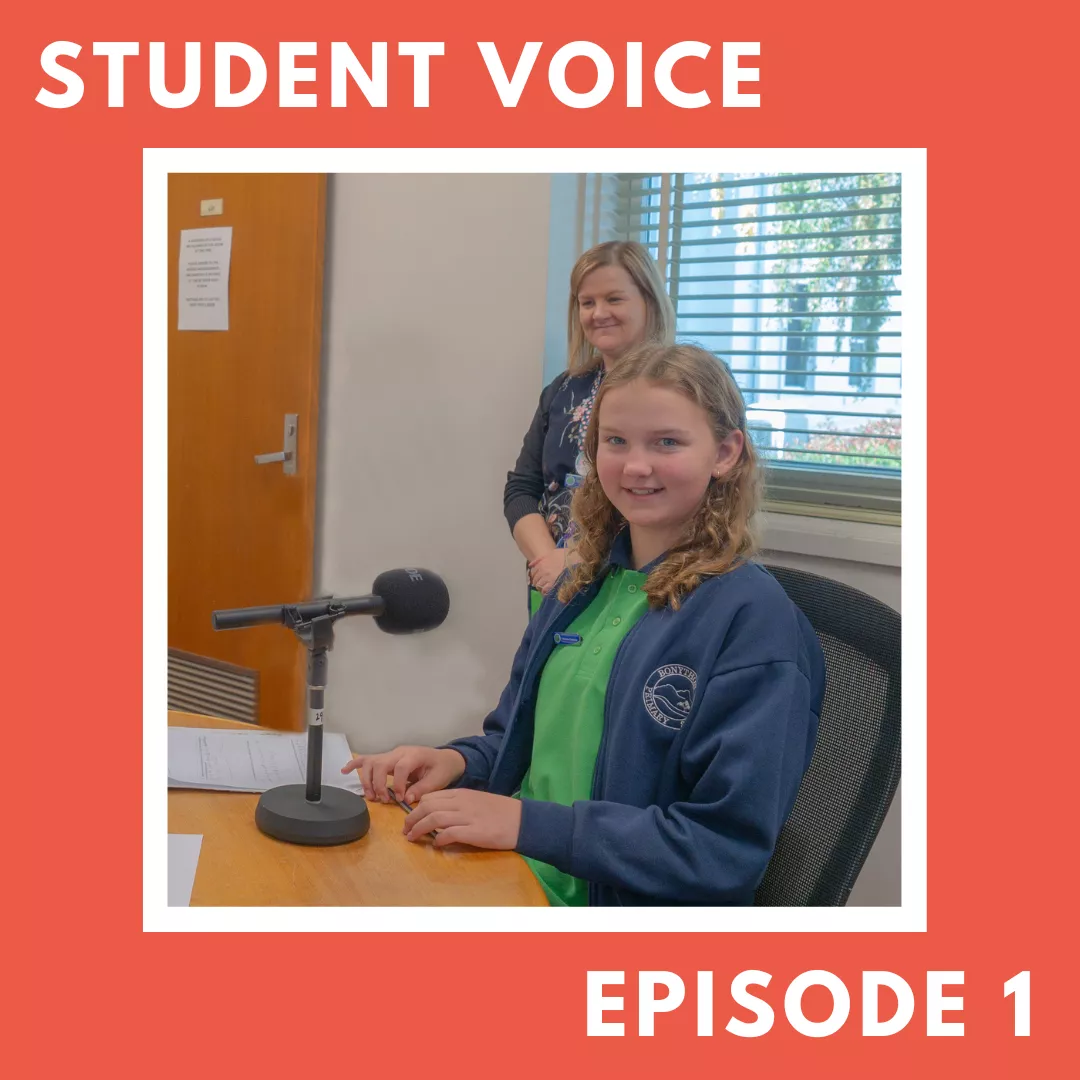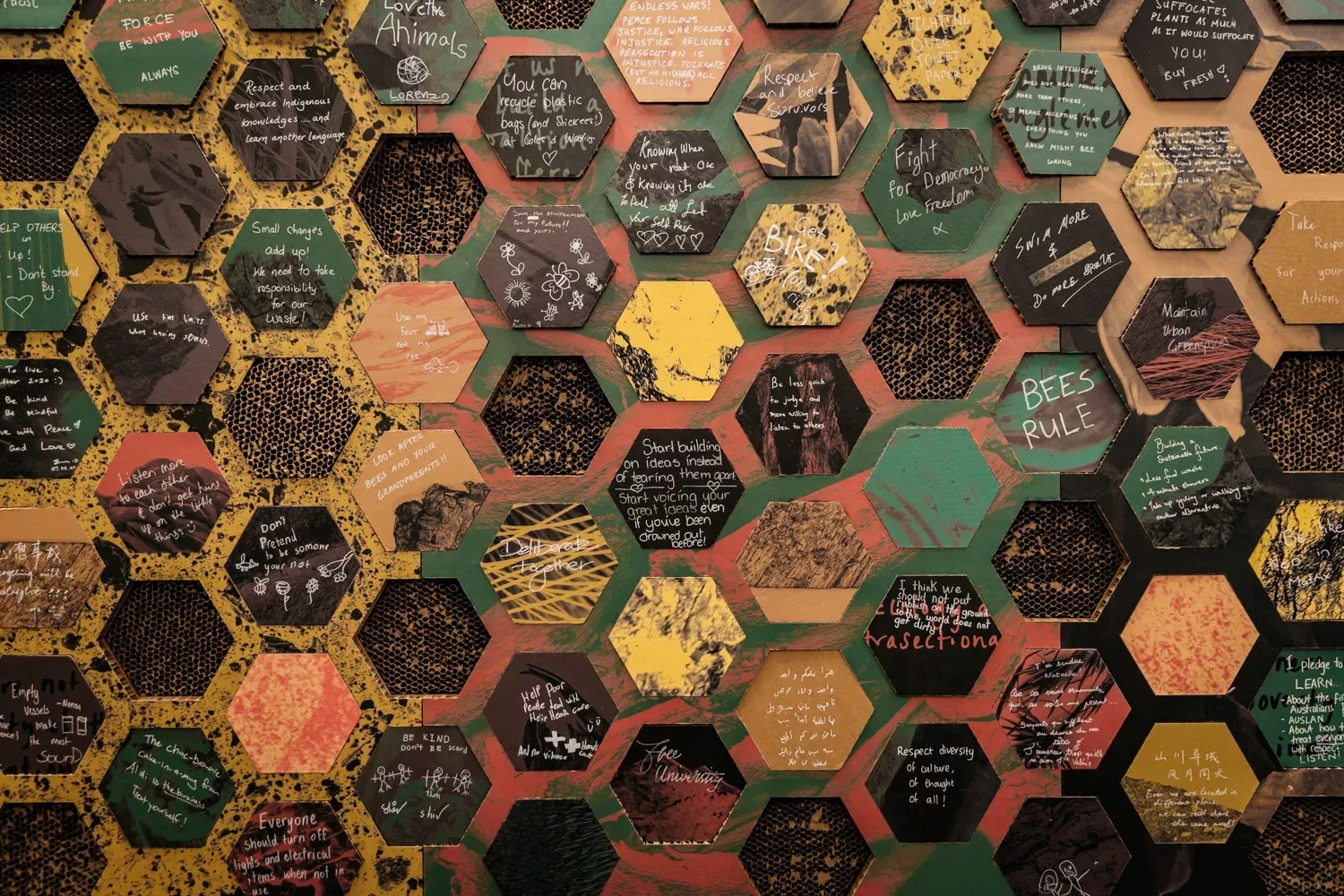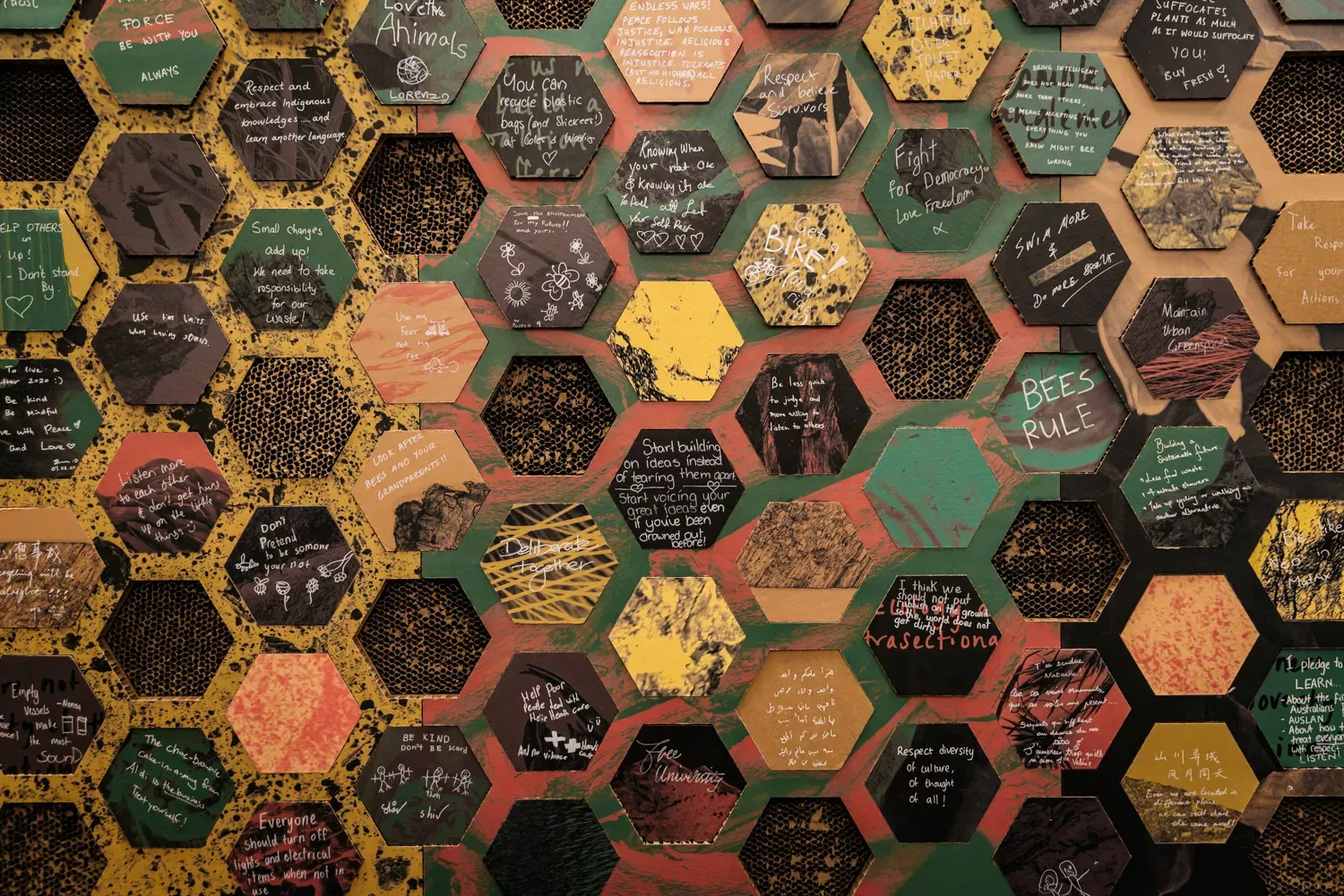Student voice – what is it?
Students talk about the ways they can use their voice.
How powerful are students' voices within our democracy? In this episode students discuss how they've used their voice within their school and community.

MoAD and the Courtyard Cafe are open. Some exhibitions and rooms will be closed from September 2025 for essential building works. Learn more


How powerful are students' voices within our democracy? In this episode students discuss how they've used their voice within their school and community.

[Music playing]
Student 1: Welcome to a podcast from MoAD, The Museum of Australian Democracy at Old Parliament House. This is the first podcast in a three-part series. Today, we're talking about student voice, and we're going to find out why it is important for you to find your voice, so you can learn to participate in our democracy. But first, what is democracy? What do you think? Let's hear what some students think.
Student 2: I think democracy means a system of government by the whole people.
Student 3: A form of government that for over-18s is electing representatives.
Student 4: I think freedom of choice and getting to vote for a good leader.
Student 5: Everybody is different, so we would also have different and unique ideas.
Student 1: The word 'democracy' is made up from two very old words from ancient Greece. 'Demos' meaning 'people', and 'kratos' meaning 'power'. 'People power', really. Democracy means that the people have the power, so you have power in our democracy too. So how can you use that power?
Student 6: Examples are Art Enrichment, Sustainability Club, and Outdoor Learning Club, and also being house captains in the leadership team.
Student 7: Everyone from K to 6 at our school votes for new house captains every year.
Student 8: Us House Captains have meetings, say for like swimming carnivals each year.
Student 1: Democracy means you can have a say and vote for what you want. Voting is a right and a responsibility that we have in Australia, but you have to be over 18 to vote, and perhaps you're not old enough to have your say this way. Then what else can you do to your voice to express what you believe? How can you show support for a cause to help create change? Perhaps there's something that you are passionate about at school or in your community. What would you do? Let's hear what others have done.
Student 9: Student voices being heard, so our school can improve and so students have a safe place to learn.
Student 10: Share ideas and contribute to the bigger things.
Student 1: With student voice, you're practising your rights and responsibilities to get involved and have a say. And you're developing skills that can be used when you're older to help our country, and world, be a better place. After all, we're the students in our schools, and we're at school for quite a while, so our ideas and voices should count. And do you know what? They do. Because as young people, we have special rights. We have the right to an education, and the right to have a say about our education. This is because Australia has agreed to the United Nations Convention on the Rights of the Child, which lays out these special rights, including us having a say about things that affect us. So, think about how your voice can be used at your school to create change, for something that really matters. Talk to your friends, your teachers, and your parents. Think about ways you can get support to have your voice heard about an issue.
Tune into our next podcast to find out how some students have used their voices to make a change to the way they actually learn at their schools. Thanks for joining us today. We challenge you to find your voice, so you can learn more, do more and be more.
[Music playing]
The Museum of Australian Democracy acknowledges Australia's First Nations peoples as the Traditional Custodians of Country throughout Australia. We recognise their continuing connection to land, waters and community. We respectfully acknowledge the role that First Nations people continue to play in shaping Australia's democracy. We also acknowledge the Ngunnawal, Ngunawal and Ngambri peoples as the Traditional Custodians of the region in which MoAD is located.
© Copyright 2026 Museum of Australian Democracy at Old Parliament House Privacy Statement
